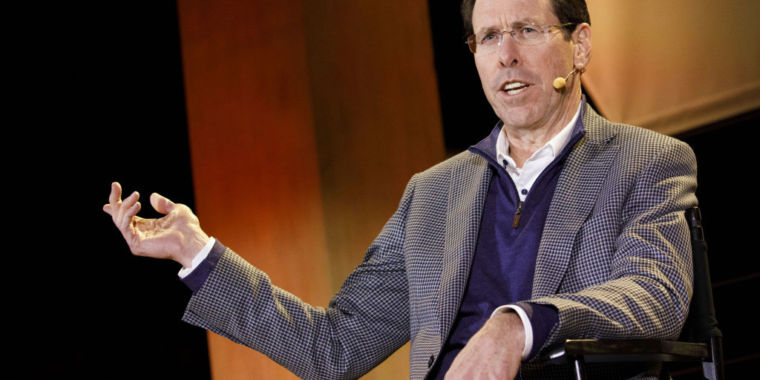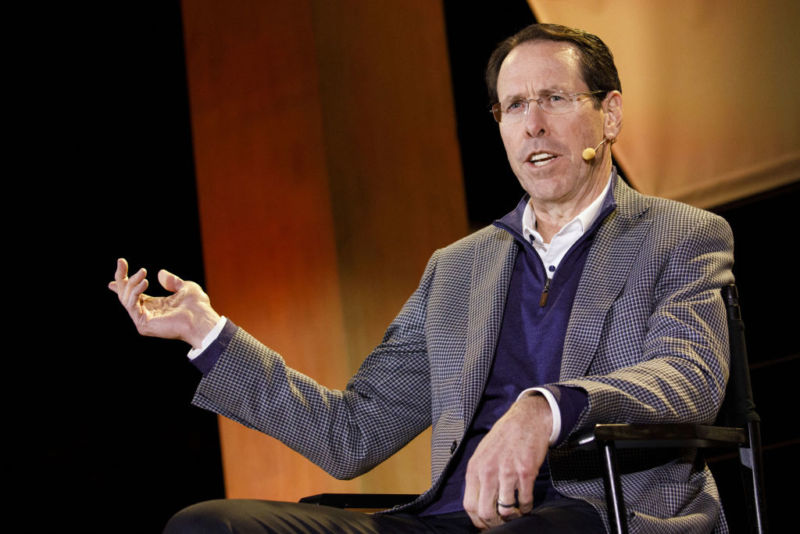
[ad_1]

Getty Images | Bloomberg
AT&T CEO Randall Stephenson yesterday urged Congress to pass net neutrality and consumer data privacy laws that would prevent states from issuing their own stricter laws.
“There are a number of states that are now passing their own legislation around privacy and, by the way, net neutrality,” Stephenson said in an interview at a Wall Street Journal tech conference (see video). “What would be a total disaster for the technology and innovation you see happening in Silicon Valley and elsewhere is to pick our head up and have 50 different sets of rules for companies trying to operate in the United States.”
There was a single US standard for net neutrality passed by the Federal Communications Commission in 2015. But AT&T and other ISPs opposed it and sued the FCC in a failed effort to get the regulation thrown out by a court.
The FCC repealed those rules after President Trump appointed Republican Ajit Pai to lead the FCC. Now that states such as California are trying to impose their own net neutrality rules, AT&T wants another federal standard that won’t be as strict as the state laws or the repealed federal regulations.
Paid priority and zero-rating
The Journal didn’t post full video of Stephenson’s interview but described his other remarks on net neutrality in an article.
“There should be no blocking,” ISPs “should not be allowed to throttle somebody else’s content,” and any device should be allowed to connect to the Internet without interference, he said, according to the Journal.
Stephenson apparently made no mention of banning paid prioritization, which was banned under the now-repealed FCC rules and by the California law that AT&T and other ISPs are fighting in court. The omission makes sense, given that AT&T has previously argued that some forms of paid prioritization should be allowed.
Stephenson also apparently did not call for any limitations on zero-rating, the practice of exempting some Internet content from data caps, often in exchange for payment from content providers. The California law would ban paid zero-rating, which would force AT&T to stop charging companies for data cap exemptions. (The California law is being challenged in court by the broadband industry and Trump administration, which says state laws are preempted by the federal net neutrality repeal. California agreed to suspend its law until litigation over the federal preemption is over.)
Ultimately, Stephenson appears to be looking for a federal law with only the most basic net neutrality rules, i.e., no blocking and no throttling. He’d also like a federal privacy law that would prevent states from issuing stricter rules.
There should be “legislation around customer data protection,” Stephenson said, adding that “it shouldn’t be that difficult to pull together.”
“We’ve got a mess coming at us, literally states independently going out and designing their own privacy regulation,” Stephenson said. “How do you do business in a world where you have 50 different regulations and rules around privacy?”
Source link